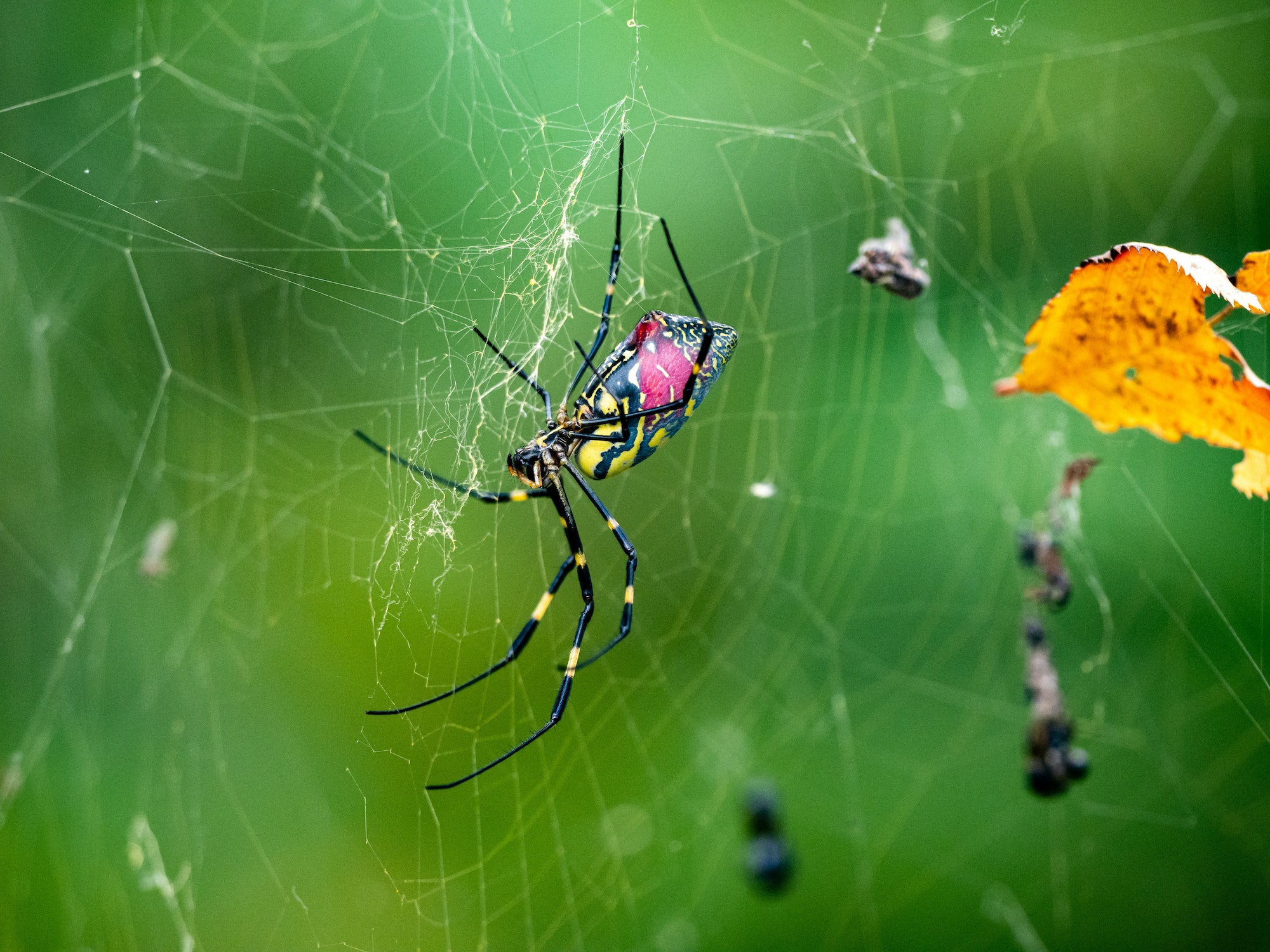Greenville Post – April, 2023
Greenville, South Carolina, is a thriving city known for its beautiful natural landscapes, rich history, and vibrant arts scene. However, this picturesque city is not immune to the ecological challenges many communities face worldwide. One recent example is the arrival of the Japanese Parachute Spiders, a species that has raised concerns for local ecosystems and wildlife.
A Brief Introduction to the Japanese Parachute Spiders
The Japanese Parachute Spider, also known as the Joro spider (Trichonephila clavate), is native to East Asia, including Japan, China, and Korea. These colorful spiders are known for their striking appearance, with females sporting bright yellow and blue markings on their large abdomens. They have an unusual mode of dispersal: the young spiders release silk threads that catch the wind, allowing them to “parachute” through the air and colonize new areas (1). This unique method of transportation has allowed them to spread to new territories, including the southeastern United States.
The Arrival of Japanese Parachute Spiders in Greenville, SC
The Japanese Parachute Spiders were first spotted in Georgia in 2014 (2), and since then, they have been found in other parts of the southeastern United States, including South Carolina. With its diverse ecosystems and outdoor recreational opportunities, Greenville has not been spared from this recent invasion. Residents have reported sightings of these exotic spiders, raising concerns about their potential impact on the local ecosystem.
The Potential Ecological Impact in Greenville
Introducing non-native species can sometimes lead to unforeseen consequences, as they can compete with native species for resources, disrupt food chains, or introduce diseases (3). However, the potential ecological impact of the Japanese Parachute Spiders in Greenville still needs to be fully understood.
Some experts argue that the spiders may help control populations of insects like mosquitoes and flies, which are common pests in the region. The spiders have voracious appetites and can consume large numbers of these insects, providing natural pest control (4).
Others are concerned that the spiders may compete with native spiders for food and habitat. Native spiders, like the yellow garden spider (Argiope aurantia), are vital in controlling insect populations and maintaining the balance of local ecosystems. If the Japanese Parachute Spiders outcompete native species, this delicate balance could be disrupted (5).
Moving Forward: Monitoring and Management
Given the diverse perspectives on the potential ecological impact of the Japanese Parachute Spiders in Greenville, monitoring their presence and studying their effects on the local ecosystem is essential. Researchers from nearby universities and local wildlife organizations are conducting studies to understand the spiders’ impact better and inform appropriate management strategies (6).
In the meantime, Greenville residents can do their part by reporting sightings of the Japanese Parachute Spiders to local authorities or participating in citizen science initiatives to help track their spread. By working together, the Greenville community can ensure that its beautiful natural landscapes and ecosystems remain healthy and vibrant for future generations.




